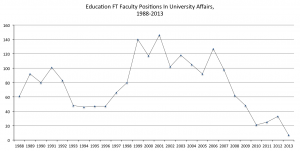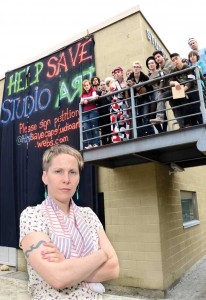With the Chair of BoG and Sauder School of Business administrators under investigation, UBC advises that now is the time to speculate about President Gupta and all University affairs, if not everything. As it should be at a research institution. As it should be with the economy in shambles.
Over the past few weeks, speculation on the sudden resignation of President Gupta has been impressive. For starters, here are some running reasons for the resignation:
- The University guesstimates that the resignation was a “leadership transition.”
- The FAUBC reports that the University also presumes that the President “wishes to return to the life of a Professor of Computer Science.”
- Martha is inclined to accept at face value that this was Arvind’s “decision to step down” and whatever the reason we should respect whatever the University says it is or isn’t.
- Jennifer suggests that in challenging Montalbano, Chair of BoG, the President lost a masculinity contest. In other words, he lost what the Romans called a ludi mingo (roughly translated as a p-ing game or contest).
- Wayne postulates that triskaidekaphobia finally took its toll on the President, the thirteenth in UBC’s history. The presidential hot-seat– think of the Spinal Tap drummer syndrome here.
- Eva fancies that the President was told by the Chair of BoG that his fountain would not spew higher than the Martha Piper Fountain, prominently configured on the highest point of campus at the centre of the Martha Piper Plaza. Alas, President Piper must be reinstalled. This reason adds missing clues and details to #4.
- The Ubyssey posits that the President might have found something foreboding in his “performance reports.” This may have required reading between the lines.
- Nassif presupposes that the President was yet another of the “victims of end runs by deans,” wherein there is a well-trodden path dating back more than a century.
- Charlie conjectures that Montalbano and the BoG evened the score by making Gupta’s tenure difficult after he canned or nudged out VP Ouillet.
- Tony has a suspicion that, post Gupta’s resignation, UBC leaders adopted PM Harper’s template of denying implication in the controversy.
- CUPE Locals believe that Gupta was “removed by the largely unelected Board of Governors.” Emphasis on “unelected.”
- Simona and Frances figure that administrators still left on campus have some answers. They gather that Gupta “didn’t treat administrators with the same care” as faculty members. Needy as they are, certain admin got anxious and jealous. “Arvind was alienating people one at a time,” one administrator confided. It was time for him to go back down to research and teaching.
- Andrew reckons that “there’s some kind of mutual agreement” at work. Nobody knows what this agreement is or if it was really mutual or just a fist-bump and not really an agreement in the official sense if it was just a wink wink to agree to disagree.
- ? [send us your reckons]
UBC says now is the time to speculate. Indeed, we’re hearing that a new motto for the next one hundred years at UBC is being bounced around in Central: Occasio Speculatio. After all, Tuum Est, the motto for the first hundred never recovered after the students in the 1960s dubbed it: Too Messed.

 Follow
Follow

How not to run a university (Prologue + Trilogy)
Here are links to E. Wayne Ross’ commentaries on the ongoing leadership crisis at the University of British Columbia. All the commentaries have appeared on his blog and several have also appeared in the Vancouver Observer:
Comments Off on How not to run a university (Prologue + Trilogy)
Posted in Academic freedom, Academics, Accountability, Administration, Bullying & Mobbing, Commentary, Corporate University, Free speech, Governance
Tagged Academic freedom, Accountability, Arvind Gupta, bullying, Ethics, Free speech, Governance, harassment, higher education administration, Jane Berdahl, John Montalbano, leadership, Sauder School of Business, transparency, UBC, UBC Board of Governors, UBC Faculty Association, UBCFA, University of British Columbia, University presidents